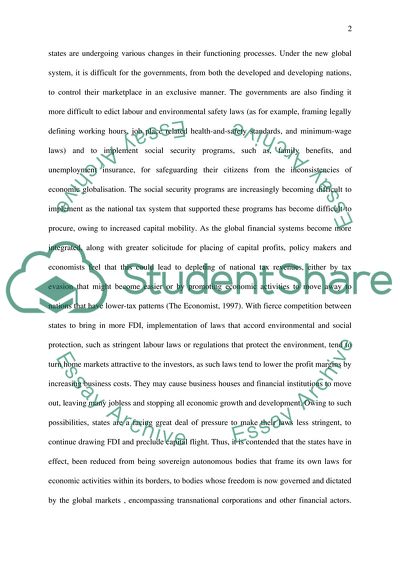Cite this document
(“Globalisation and Sovereignty Essay Example | Topics and Well Written Essays - 4750 words”, n.d.)
Globalisation and Sovereignty Essay Example | Topics and Well Written Essays - 4750 words. Retrieved from https://studentshare.org/social-science/1815600-why-does-sovereignty-still-exist-in-a-globalized-world
Globalisation and Sovereignty Essay Example | Topics and Well Written Essays - 4750 words. Retrieved from https://studentshare.org/social-science/1815600-why-does-sovereignty-still-exist-in-a-globalized-world
(Globalisation and Sovereignty Essay Example | Topics and Well Written Essays - 4750 Words)
Globalisation and Sovereignty Essay Example | Topics and Well Written Essays - 4750 Words. https://studentshare.org/social-science/1815600-why-does-sovereignty-still-exist-in-a-globalized-world.
Globalisation and Sovereignty Essay Example | Topics and Well Written Essays - 4750 Words. https://studentshare.org/social-science/1815600-why-does-sovereignty-still-exist-in-a-globalized-world.
“Globalisation and Sovereignty Essay Example | Topics and Well Written Essays - 4750 Words”, n.d. https://studentshare.org/social-science/1815600-why-does-sovereignty-still-exist-in-a-globalized-world.


